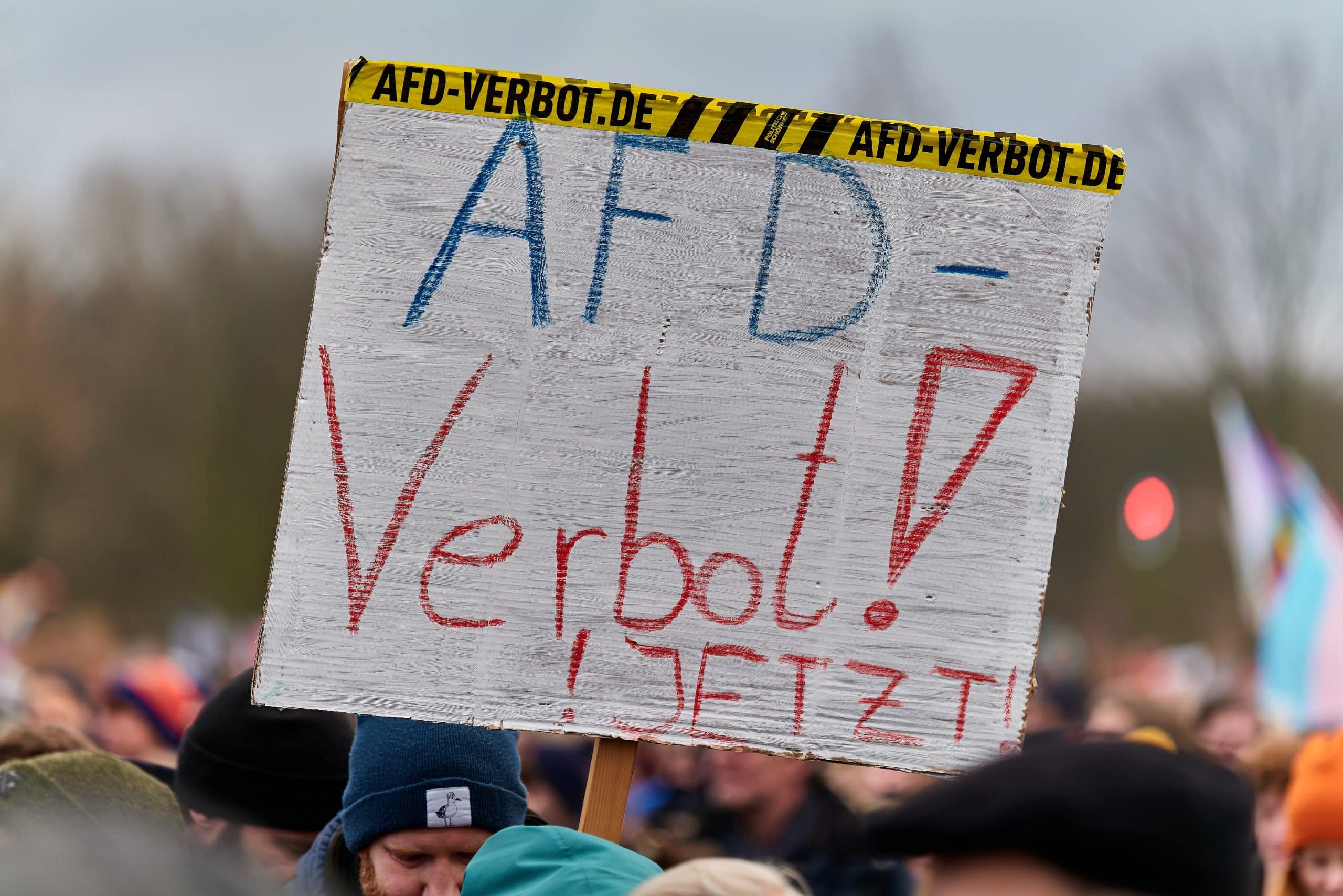Recently, the Federal Office for the Protection of the Constitution, more commonly known as the BfV, announced that it was formally classifying Alternative für Deutschland (AfD) as a “confirmed extremist” organisation. The meaning of this, in Germany, is not to be taken lightly.
The BfV is tasked with, as you might have guessed, “protecting the constitution”. But what that imperative implies is vague. The reason the AfD faces such scrutiny from the organisation is not because of criminal activity, such as corruption or terrorism, which would unarguably constitute direct threats to the constitutional order. In fact, the BfV lacks the powers traditionally associated with a domestic security agency, being unable to issue arrest warrants or even formally charge a person with a crime. In short, it does not conduct, and this isn’t, a criminal investigation.
Instead, the BfV pursues what it calls “anti-constitutional activities”, wherein the definition of what it means to be effectively guilty changes from criminal action and intent to deviating from what the BfV considers to be the established liberal democratic order. Here the charges are that the AfD “contradicts the understanding of the nation” and has “expressed views hostile to foreigners and Muslims”, including “accus[ing] asylum-seekers and migrants from Muslim countries of origin of cultural incompatibility”.
These are, to me at least, value judgements, which I personally might well disagree with, but which also, as others have pointed out, quite probably would have been commonplace some 30 or 40 years ago, when Germany was still very much a liberal democracy (in the West if not in the East).
But the BfV doesn’t just have the ability to accuse, and when it chooses to condemn, as it has done with the AfD, the measures that can be taken against the entity in question become truly extraordinary. Intelligence services can officially and legally spy on the party, infiltrate it with informants and use wiretaps to monitor members. And that is just because the party is “suspected” of being extremists. Confirming that label, as the BfV has done, has sparked discussion on cutting off the party from state funding, which all parties normally receive.
And then there is the final step, the nuclear option; that of banning the AfD outright. That idea has been floated by the new Minister of Justice, Stefanie Hubig, among many others in the governing coalition, both at the federal and state levels. That’s not to say that there isn’t disagreement; the Minister of the Interior is sceptical of a ban, and he isn’t alone.
But what makes this particularly distasteful is that the BfV is far from an independent agency, being part of the Ministry of the Interior, with its head directly answering to and appointed by the federal government. Any judgement made by the agency will therefore always be suspected of being politically motivated.
For now, the AfD has challenged the classification in court, and the BfV has said that it will wait for a ruling before proceeding further. I predict that this is a case that the AfD will lose, as it did in a similar one back in 2022. But even if it wins, that doesn’t mean that the temperature won’t keep rising, and that the assaults against the party will cease. It will certainly continue to be provocative, and therefore continue to provide excuses for its own destruction.
Ultimately though, these efforts won’t work, because the whole framework of the BfV doesn’t work. The existence and popularity of parties like the AfD isn’t because of charismatic extremists who are fooling the electorate, or even because of the now ubiquitous concept of “misinformation”.
They exist because of dissatisfaction with the political system, and because of a feeling among segments of the population that societal problems – their concerns – are not being adequately addressed. And these are real problems, or at the very least perceived real problems, such as immigration and the difficulties with integration and crime; demographic pressures on pensions, welfare, the labour market and more; rising wealth inequality and rising costs-of-living; alienation as traditional collective structures dissipate; unimpeded technological advancements threatening to make impossible the lifestyles of the past. And that’s just a few.
The innate promise of a party like the AfD is that it can solve all these problems by overturning and overthrowing the current political establishment. Whether they actually can – doubtful – is not the point. But by squeezing and excluding them, you are denying yourself the true antidote; showing that, if they are allowed to take part in governing, they will fail to solve the problems that they alone claim to be able to solve.
But driving them underground means that their promise will always remain; never consummated, never tried and tested, but pure and untainted by the muddy realities of government. An alternative that you have been denied.
And that dynamic will only worsen with time, as the problems outlined above are here for the long haul, based on long-term trends and global changes. Solving or reversing them, if that is even possible, would take decades.
And time is not something the new government has. Friedrich Merz’s CDU-SPD coalition rests on shaky ground, consisting of two traditional rivals who, partly because of the popularity of the AfD, have been forced to govern together. To meet the great challenges that Germany faces will be hard, harder still when every decision will be subjected to the kind of half-hearted compromises that such a coalition will invariably bring.
Tensions were already high on the very first day, when the vote to make Friedrich Merz chancellor failed due to dissenting social democrats who wanted to send a message to the incoming leader that he was on thin ice. These kinds of games of chicken are in the end what killed Scholz’s precursor government, similarly composed of ideologically opposed parties. It certainly does not a strong government make.
The point here is not that Merz will inevitably fail, and there are reasons to be quite optimistic. Rather, it is that if they fail to deliver, if they do not satisfy, if they do not solve every problem and issue while simultaneously dismantling the main political opposition, the atmosphere that will be created in Germany will well and truly become increasingly hostile toward democracy.
That is because the actions of the BfV, and far more so if endorsed by the government, strikes harshly at that core and most elusive of democratic necessities: trust. Trust that those in power are listening and responding, that they are there to help, that they have your best interests at heart, and will act accordingly. But if your dissatisfaction is punished instead of addressed, because your criticisms fall outside the bounds of what they deem acceptable, you might well start to lose that trust.
And those efforts might only be beginning. While a full-scale ban might yet be hard to achieve – requiring both political and judicial approval – other ways of hindering the party are already being discussed. An argument currently gaining momentum is that individual members of the AfD, who would be by definition extremists, should be investigated and potentially excluded from being employed in professions considered critical to the constitutional order, such as civil servants, judges and police.
Some have gone further, arguing that teachers who are identified with the AfD and express “anti-democratic” sentiments should be liable to be terminated. The definition of “anti-democratic” is, of course, largely left open-ended.
This, to my mind, is not how a liberal democracy acts. But even putting that aside, there is a real risk that such efforts backfire, and, instead of putting an end to “extremism”, furthers and deepens any radicalisation happening in German society. If the new government does not moderate and caution, and instead whole-heartedly pursues this attempted extirpation of the AfD from political life and civil society, then it is hard to see how it does not turn every setback into a victory, legitimising their complaints of persecution and empowering their voices when denouncing the supposed unresponsive and corrupt nature of the establishment.
And if the AfD is banned, if that path of no return is embarked upon, then a successor party will raise their banner anew, reaping the whirlwind of anger and distrust to challenge the establishment once more. And in that atmosphere, the pressures of public sentiment and resentment might make it impossible for the BfV to meet the challenge and pursue the same measures it is taking today. What begins as a defeat might well turn into a rout, tipping German democracy into a crisis of legitimacy from which it may not soon recover.
↓ Image Attributions
“Aufstand der Anständigen demonstration Berlin on Platz der Republik 2025-02-02 25” by Leonhard Lenz // Licensed under CC0 1.0




